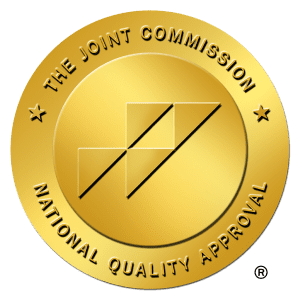
When facing substance dependence, the first step toward recovery is often the most daunting: detoxification. A critical choice emerges at this crossroads—attempting to detox alone or seeking professional help. While the desire for privacy and control is understandable, the reality is that self-detox is a high-stakes gamble with unpredictable and often dangerous consequences. Understanding the profound differences between a professionally managed medical detox and going it alone is not just informative; it can be life-saving.
This article provides a comprehensive comparison of medical detox vs. self-detox. We will explore the processes, risks, and benefits of each, highlighting why a supervised medical approach is the universally recommended standard of care for beginning a safe and sustainable recovery journey.
What Is Medical Detox?
Medical detox is the process of safely managing the acute physical symptoms of withdrawal under the care of medical professionals in a controlled clinical setting. It is the essential first step in addiction treatment, designed to stabilize the body as it clears itself of drugs or alcohol. This process is conducted within a safe environment, such as a dedicated rehab clinic or medical facility, where a team of doctors, nurses, and addiction specialists can provide 24/7 supervision.
At Grata Health, comprehensive detox services offer the medical oversight necessary to navigate withdrawal safely and comfortably.
The core components of medical detox include:
- Comprehensive Evaluation: Upon admission, medical professionals conduct a thorough assessment of a patient’s physical and mental health, substance use history, and any co-occurring medical conditions.
- Stabilization: The primary goal is to manage the often-severe withdrawal symptoms that occur when a substance is removed. This involves continuous monitoring of vital signs and, when necessary, the use of medication-assisted treatment (MAT) to alleviate discomfort and prevent dangerous complications.
- Preparation for Further Treatment: Medical detox is not a standalone cure for addiction. It is the foundational phase that prepares an individual, both physically and mentally, to engage in the therapeutic work necessary for long-term recovery.
What Is Self-Detox?
Self-detox, often called “going cold turkey,” is the attempt to stop using a substance abruptly and without any form of medical supervision. This is typically done at home, where an individual relies on their own willpower, over-the-counter remedies, or sheer endurance to get through the withdrawal period.
People may choose self-detox for various reasons, including shame, privacy concerns, a lack of financial resources, or the misconception that addiction is a moral failing that can be overcome by willpower alone. However, this approach completely lacks the safety net required to manage a complex medical process. Without access to professional oversight, there is no way to receive timely medical intervention if a life-threatening complication arises.
Why Is Medical Detox Safer Than Self-Detox?
The fundamental difference between medical detox and self-detox comes down to one critical factor: safety. The withdrawal process is physiologically taxing and notoriously unpredictable. What begins as mild discomfort can escalate into a medical emergency without warning. Medical supervision is the safeguard that mitigates these risks.
According to the Substance Abuse and Mental Health Services Administration (SAMHSA), withdrawal from certain substances—particularly alcohol and benzodiazepines—can produce life-threatening complications including seizures, delirium tremens, and cardiovascular issues (SAMHSA: Detoxification and Substance Abuse Treatment).
In a professional setting, medical professionals continuously monitor vital signs like blood pressure, heart rate, and body temperature. This constant vigilance allows them to detect the earliest signs of distress and intervene before a situation becomes critical. Furthermore, medical detox provides immediate access to psychological support to help manage the intense anxiety, depression, and emotional distress that frequently accompany withdrawal, creating a more stable foundation for recovery. Self-detox offers none of these protections, leaving the individual isolated and vulnerable.
What Are the Risks of Self-Detox?
Attempting to detox without professional help exposes an individual to a range of severe and potentially fatal risks. The body’s reaction to the absence of a substance it has become dependent on can be violent and overwhelming.
Key dangers include:
- Severe Neurological Complications: For those detoxing from alcohol or benzodiazepines, the risks are particularly acute. Alcohol withdrawal syndrome can lead to seizures, which can be fatal, especially for anyone with a history of seizures. The most dangerous complication is delirium tremens (DTs), a medical emergency characterized by severe confusion, agitation, hallucinations, and cardiovascular collapse. Research published in the American Journal of Psychiatry indicates that approximately 5% of individuals experiencing alcohol withdrawal develop delirium tremens (NCBI: Alcohol Withdrawal Syndrome). The onset of DTs can be sudden and requires immediate, intensive medical care.
- Cardiovascular Crisis: The stress of withdrawal can wreak havoc on the cardiovascular system. It can cause a rapid heartbeat and dangerously high blood pressure, significantly increasing the risk of a heart attack or stroke, particularly in individuals with pre-existing heart disease.
- Extreme Dehydration and Electrolyte Imbalances: Symptoms like persistent vomiting and diarrhea can lead to severe dehydration and critical electrolyte imbalances, which can affect heart and brain function.
- Overwhelming Psychological Distress: The emotional distress of withdrawal—including intense cravings, anxiety, and paranoia—can become unbearable. Without support, this suffering often leads to relapse, which is especially dangerous as tolerance has decreased, increasing the risk of a fatal overdose. Studies show that medically supervised detox significantly improves treatment retention and long-term recovery outcomes compared to unsupervised withdrawal attempts (National Institute on Drug Abuse: Treatment Approaches for Drug Addiction).
How Does Medical Detox Support Long-Term Recovery?
Medical detox is far more than just short-term management of withdrawal symptoms; it is the strategic starting point for a lifetime of healthy recovery. By providing a safe and stable beginning, it creates the essential foundation upon which lasting sobriety is built.
Here’s how it supports long-term goals:
- Creates a Map for Rehabilitation: During detox, the clinical team performs a comprehensive assessment that identifies not just the primary substance use disorder but also underlying medical conditions and potential co-occurring addictions or mental health issues like anxiety and depression. This information is used to create a personalized map for rehabilitation—a detailed, long-term treatment planning guide for the next steps.
- Facilitates a Seamless Transition to Treatment: Detox alone is rarely enough. A professional program provides a warm handoff to the next appropriate level of care, whether it be inpatient treatment or outpatient programming. This continuity of care is crucial for maintaining momentum.
- Provides Structured Support: From day one, patients are introduced to a system of structured support. This includes medical care, therapeutic guidance, and peer encouragement, which helps break the cycle of isolation that so often fuels addiction. At Grata Health, patients benefit from holistic treatment approaches that address the whole person.
What Should You Look for in a Medical Detox Program?
Choosing the right program is vital for a successful outcome. When evaluating options, look for a facility that offers:
- Accreditation and Licensing: Ensure the facility is fully licensed by the state and maintains current certifications. Grata Health is licensed and certified by the State Department of Healthcare Services, demonstrating commitment to quality care standards.
- Expert Medical Staffing: The program must be staffed 24/7 by qualified medical professionals, including doctors and nurses, with specialized addiction specialists guiding the treatment protocol.
- Evidence-Based Protocols: Reputable centers use proven clinical guidelines for managing withdrawal. This includes the appropriate use of medication-assisted treatment (MAT) and protocols specifically designed for different substance dependencies, including comprehensive approaches to fentanyl, prescription opioids, and heroin addiction.
- A Full Continuum of Care: The best programs provide a seamless transition from detox into ongoing therapy and aftercare planning, ensuring sustained support throughout the recovery journey.
Is Medical Detox Right for You?
If you or a loved one is physically dependent on alcohol, benzodiazepines, or opioids, the answer is an unequivocal yes. For these substances, medical detox is not just the better option—it is the only safe one. The outcome of withdrawal is too unpredictable to leave to chance. While concerns about privacy or cost are valid, they pale in comparison to the risks of a seizure, a heart attack, or the onset of delirium tremens at home.
The structured and supportive setting of a medical facility provides the necessary safety net to navigate the difficult detoxification process. It ensures that any complications are managed immediately and effectively, paving the way for a positive start to recovery. For individuals struggling with cocaine, methamphetamine, or polysubstance abuse, professional medical oversight is equally critical.
Begin Your Recovery Journey with Professional Support
Choosing between medical detox and self-detox is the first major decision on the path to sobriety, and it’s one that defines the entire journey ahead. Opting for professional medical solutions is a powerful act of self-preservation and a commitment to building a truly sustainable recovery. A proper detoxification process is the first, non-negotiable step toward lasting wellness.
Recovery is a journey that should never be undertaken alone. By entrusting your care to experienced and compassionate professionals at Grata Health in Ventura County, you make the detox process safer, more comfortable, and exponentially more likely to lead to long-term success. The courageous first step is reaching out for help.
If you or a loved one is considering detox, contact Grata Health at 1-805-516-0156 to speak with our admissions team about how our comprehensive treatment programs can support your recovery journey.
